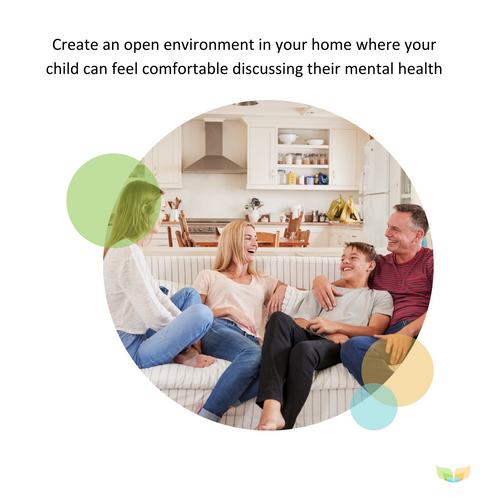Parenting a child with mental health issues can be challenging, but it's also incredibly rewarding. With the right support from professionals and family members, your child has the best chance of managing their mental health effectively and leading an enjoyable life. Start by talking to your child about their mental health—even if it feels intimidating or overwhelming. Ask questions, listen to their answers, and reassure them that it’s ok to talk about difficult topics.
Try to create an open environment in your home where your child can feel comfortable discussing their mental health with you. Encourage them to express their feelings without fear of judgment or criticism—this will make it easier for them to come to you when they need help. Ask questions, validate their feelings, and let them know you are available. Once you understand what your child is going through, you can better equip yourself to provide them with the support they need.
As a parent, it’s important to stay informed about mental health issues and be aware of the signs of distress in your child. Understanding their emotions and offering support can help them work through difficult times. Signs that your child is in distress with their mental health can vary greatly depending on the individual, but there are some common warning signs to look out for. These include mood swings, changes in communication patterns, increased irritability or aggression, physical symptoms such as headaches and stomach aches, difficulty sleeping, and apathy or lack of motivation.
You should also help your child find strategies that they can use to manage their mental health. These can include therapy, medication, and other self-care practices like journaling or exercise. Exploring different strategies together with your child will allow them to find what works best for them. Additionally, make sure to take care of yourself as a parent too—this will give you the strength and resilience necessary to be there for your child during difficult times. With the right support and strategies in place, you can help your child to live a fulfilling life. If you need additional assistance or advice, reach out to medical professionals or other parents who have gone through similar experiences. Here are some additional suggestions for a parent’s self-care:
1. Acknowledge your own feelings and allow yourself to experience them without judgment
2. Talk to other parents who may have gone through similar experiences
3. Take time for yourself each day—do something that you enjoy or helps you to relax, such as going for a walk or reading a book
4. Seek professional help if needed, such as talking to a therapist or joining support groups
5. Practice healthy habits like exercise and eating well
6. Get plenty of restful sleep on a regular basis
7. Use positive self-talk and try not to focus too much on negative thoughts
8. Find ways to take breaks from the situation when possible–such as spending time with friends or taking up hobbies
9. Prioritize activities that bring joy into your life (such as music, art, sports etc.)
10 Make sure you have an outlet for expressing emotions (journaling is great for this)—and listen to their feelings and experiences.
Encourage your child to seek professional help if needed, such as a therapist or psychiatrist, who can give them the tools they need to manage their mental health symptoms. Mental health programs such as the Intensive Outpatient Program (IOP) and Partial Care programs at Innerspace Counseling are also wonderful resources. These programs offer short term intensive treatment that includes group therapy, individual therapy, medication management, and family sessions. These all-inclusive programs are available to teach skills that will help improve mental health and functioning for the long term. Call 732-332-8270 for more information.

